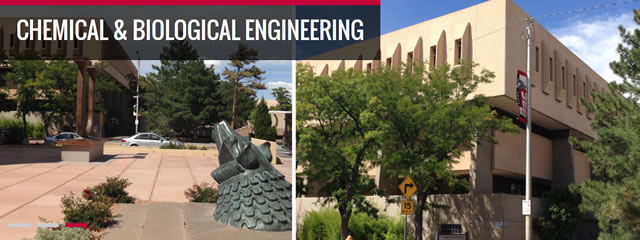
Chemical and Biological Engineering ETDs
Publication Date
Fall 11-10-2016
Abstract
Mylar® polymer is a bi-axially oriented polyethylene terephthalate (PET) polymer film used widely as a dielectric, specifically in capacitors. The dielectric characteristics of Mylar have been well studied and documented over the years; however, many of the mechanisms responsible for dielectric breakdown and failure are not understood for modified versions of the material. Previous studies on Mylar confirm that factors such as temperature, humidity, and voltage ramp rates can also have a significant effect on the dielectric properties and measurement of the dielectric properties. This study seeks to determine how dielectric properties, including permittivity, dielectric loss, and breakdown strength, are affected by doping of the polymer. To do this, two types of Mylar films, virgin film and film doped with a small-molecule electron-acceptor, are tested. Both types of materials are tested under a variety of environmental and experimental conditions, including testing at elevated temperatures, varying relative humidity, and varying ramp rates in dielectric breakdown testing. Analysis of permittivity, dielectric loss, and breakdown strength will be presented comparing virgin and doped Mylar to gain insight into the effects of doping with electron-acceptor molecules on dielectric properties under these varying environmental and test conditions.
Keywords
Mylar, PET, polyethylene terephthalate, dielectric
Document Type
Thesis
Degree Name
Chemical Engineering
Level of Degree
Masters
Department Name
Chemical and Biological Engineering
First Committee Member (Chair)
Fernando Garzon
Second Committee Member
Leah Appelhans
Third Committee Member
Richard Kemp
Recommended Citation
Belcher, Cami B.. "Dielectric Characterization of Mylar and The Effects of Doping Processes." (2016). https://digitalrepository.unm.edu/cbe_etds/56
